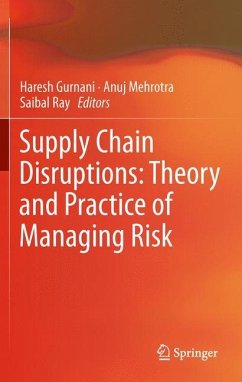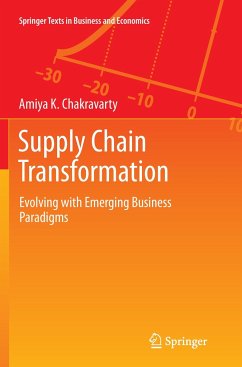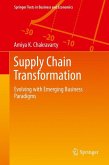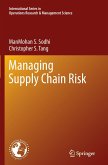One of the most critical issues facing supply chain managers in today's globalized and highly uncertain business environments is how to deal proactively with disruptions that might affect the complicated supply networks characterizing modern enterprises. Supply Chain Disruptions: Theory and Practice of Managing Risk presents a state-of the-art perspective on this particular issue.
Supply Chain Disruptions: Theory and Practice of Managing Risk demonstrates that effective management of supply disruptions necessitates both strategic and tactical measures - the former involving optimal design of supply networks; the latter involving inventory, finance and demand management. It shows that managers ought to use all available levers at their disposal throughout the supply network - like sourcing and pricing strategies, providing financial subsidies, encouraging information sharing and incentive alignment between supply chain partners - in order to tackle supply disruptions. The editors combine up-to-date academic research with the latest operational risk management practices used in industry to demonstrate how theoreticians and practitioners can learn from each other.
As well as providing a wealth of knowledge for students and professors who are interested in pursuing research or teaching courses in the rapidly growing area of supply chain risk management, Supply Chain Disruptions: Theory and Practice of Managing Risk also acts as a ready reference for practitioners who are interested in understanding the theoretical underpinnings of effective supply disruption management techniques.
Supply Chain Disruptions: Theory and Practice of Managing Risk demonstrates that effective management of supply disruptions necessitates both strategic and tactical measures - the former involving optimal design of supply networks; the latter involving inventory, finance and demand management. It shows that managers ought to use all available levers at their disposal throughout the supply network - like sourcing and pricing strategies, providing financial subsidies, encouraging information sharing and incentive alignment between supply chain partners - in order to tackle supply disruptions. The editors combine up-to-date academic research with the latest operational risk management practices used in industry to demonstrate how theoreticians and practitioners can learn from each other.
As well as providing a wealth of knowledge for students and professors who are interested in pursuing research or teaching courses in the rapidly growing area of supply chain risk management, Supply Chain Disruptions: Theory and Practice of Managing Risk also acts as a ready reference for practitioners who are interested in understanding the theoretical underpinnings of effective supply disruption management techniques.








